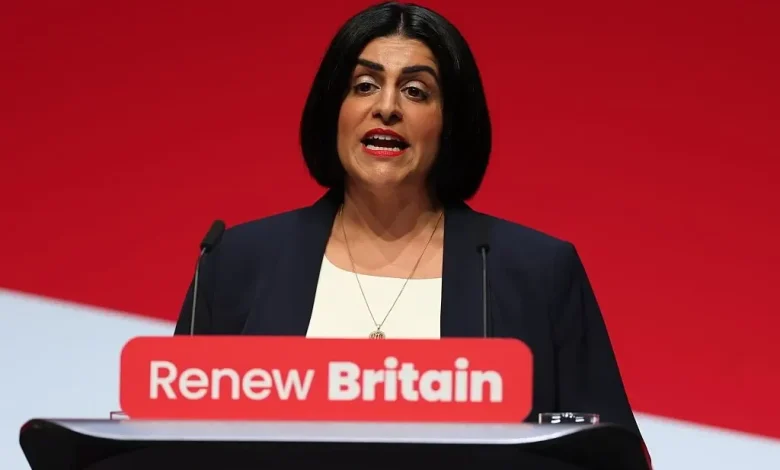Can Shabana Mahmood win the Labour immigration debate?

Remember Labour’s immigration white paper from May? It was a remarkable volte face for a party whose modern soul has been partly shaped around openness to new arrivals. It echoed the case that mass immigration sceptics have been making for 20 years. Labour, it was claimed, can now be trusted to bring legal immigration back down to modest levels after the extraordinary post-pandemic Boriswave.
On top of this, Home Secretary Shabana Mahmood is now set to unveil a series of substantial reforms which will make it easier to deport illegal immigrants. The Home Office has cited the “excessive generosity and ease of remaining” offered to new arrivals under the current system. As Mahmood presses forward with implementing the white paper and deportation strategy, she faces various legal and political obstacles — not least Labour MPs’ calls for her to soften her stance.
Those who feared the white paper was a signalling exercise and that most of the key proposals would be buried have been proved wrong. The promise to scrap the social care visa has been kept, much to the dismay of the sector. And the education and language requirements for skilled work visas have also been raised.
Yet the biggest deal of all in the white paper was the proposal to change the rules on Indefinite Leave to Remain (ILR), meaning the right to settle permanently in the country, with or without taking up British citizenship. This currently has a qualifying period (for most visa routes) of five years, but the white paper proposed extending it to 10 years. Here, things have gone quiet.
ILR matters because it concerns who can stay in the country forever. It is also important because of the extra rights that someone acquires when they receive settlement: the right to draw on the welfare system and social housing, and to bring in relatives.
For most of the past 20 years, the number of people granted settlement each year had been creeping up but hovered between 50,000 and 100,000. If David Cameron had based his famous promise to bring migration down below 100,000 a year on the settlement number rather than the net immigration number, he would have comfortably achieved his goal.
But that number is now heading north. It was 130,000 in the year to March 2024 and 172,000 in the year to March 2025. And over the next few years, as some of the 4.2 million people who have arrived since 2021 start to pass the five-year mark, around a million of them are expected to qualify for settlement. With so much recent immigration being low-skill and low-income, this will mean a substantial extra weight on Britain’s already creaking welfare system.
So, will the one million now have to wait an extra five years? Will the ILR extension to 10 years be applied retrospectively to the Boriswave arrivals? The Government has sent out conflicting signals. If it does apply this retrospectively, it will face opposition from many Labour MPs who have been emboldened by this summer’s welfare revolt, as well as legal challenges. Will a Labour government which says Reform’s plan to abolish ILR completely is racist tell a few hundred thousand nurses and care workers that they have no recourse to public funds for another five years?
There may be a way of fudging the issue, however. Mahmood has talked about rewarding people with “earned settlement” after just five years if they comply with various conditions, including being in continuous employment, not claiming benefits (for those who can), speaking English well, and not having a criminal record.
The new 10-year default could thus be used as an incentive to apply for early five-year settlement by showing you are unlikely to become a burden on the state. This would mean far fewer people waiting the full 10 years, thus making it less controversial with the Left.
Mahmood has also talked about giving back to the community by volunteering as an additional requirement for settlement. But this could easily be gamed. It would be better to require people to produce two letters of endorsement from British citizens, at least one of whom should have been born in the UK. It should also be a condition of receiving earned settlement that all the working age adults in a household are subject to the stricter criteria on employment and English language ability, helping to bring more women from traditional cultures into contact with British society.
There is another way to skin the cat that might avoid lengthy legal and political wrangling: changing what ILR entitles people to. The Government should continue to grant most immigrants settlement after five years. It gives them peace of mind that they are not going to be removed from the country, and enables greater confidence in their daily interactions with employers and landlords.
But full access to the welfare state and social housing should wait for another five years, as happens with the American green card system. Family reunion could also be delayed — though if Mahmood really does follow a tough-love Danish path, numbers might be so low that an extension to 10 years would not be necessary.
This approach could both delay and reduce the surge of extra demands on the British state — running into the tens of billions over a few years — that is currently heading down the track from the Boriswave. And, politically, it’s a compromise that could appeal to both restrictionists and a government looking nervously over its shoulder at all those backbench Labour MPs.





